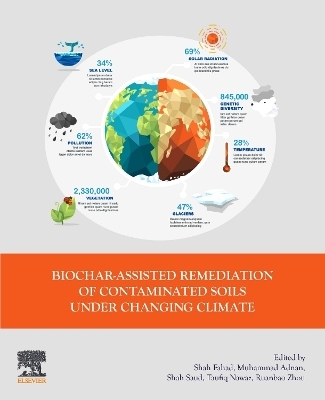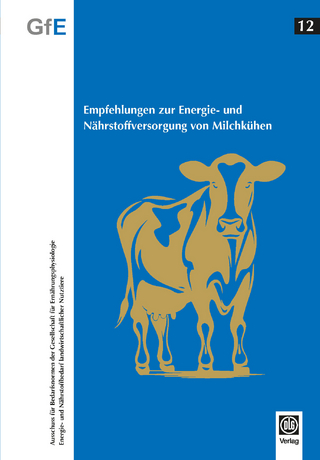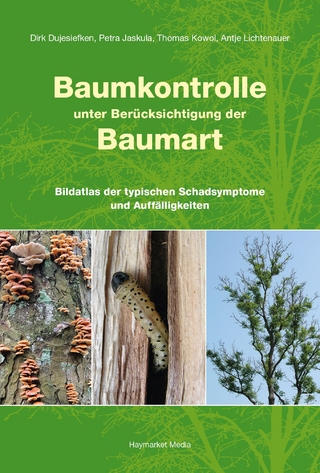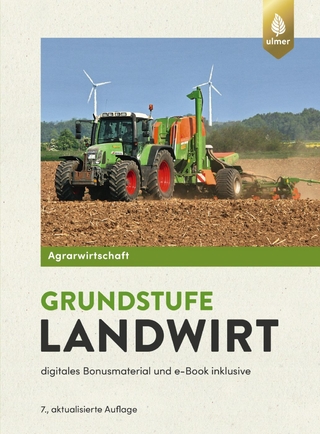
Biochar-assisted Remediation of Contaminated Soils Under Changing Climate
Elsevier - Health Sciences Division (Verlag)
978-0-443-21562-9 (ISBN)
Dr. Shah Fahad is Assistant Professor in the Department of Agronomy at Abdul Wali Khan University. He obtained his PhD in Agronomy from Huazhong Agricultural University, China. He specializes in studying the effects of climate change and anthropogenic impacts on environmental health, agriculture, and food production. Within this focal area, he has published extensively on the role of cyanobacteria in sustainable agriculture and the risks harmful cyanobacterial blooms pose to aquatic systems. He has edited 17 books, including four titles with Elsevier. Dr. Adnan Works as lecturer at the Dept. of Agriculture, Univ. of Swabi. His research area is soil microbiology & plant nutrition. including FUE, sustainable nutrients (NP) management via organic manures and bio-fertilizers like rhizobia and PSB, N2 fixation by legumes for increasing cereal production, organic wastes management via composting and soil carbon sequestration for sustainable agricultural production and reduced greenhouse gasses (CO2, & N2O) emission. Dr. Ruanbao Zhou is Professor of Molecular Microbiology at South Dakota State University. He obtained his PhD in Molecular Biology from Peking University, China. Dr. Zhou specializes in studying filamentous cyanobacteria ecology, evolution, and synthetic biology for green chemicals. He has edited several volumes, include Elsevier’s Biochar-assisted Remediation of Contaminated Soils Under Changing Climate. Dr. Taufiq Nawaz obtained his PhD in molecular biology and biotechnology from South Dakota State University. His research focuses on the application of synthetic biology to cyanobacteria, which a specific focus on utilizing sunlight and nitrogen gas to create high-quality nutritional protein powder for human consumption. He seeks to pioneer innovative methods for biofuel production and the synthesis of high-value compounds. Dr. Nawaz has published extensively on the biology and ecology of cyanobacteria. Dr. Shah Saud is Associate Professor in Linyi University’s College of Life Science. He obtained his PhD in Horticulture from Northeast Agricultural University, China. Dr. Saud specializes in studying sustainable agriculture, soil, and water conservation in the context of climate change. Within this focal area, he has published extensively on the role of cyanobacteria in sustainable agriculture and the risks harmful cyanobacterial blooms pose to aquatic systems. Dr. Saud has edited three volumes with Elsevier.
1. Biochar as soil conditioner: a reality or fantasy
2. Biochar Vs soil health under changing climate
3. Heavy metal polluted arable land and its consequences: a global scenario
4. Biochar and micronutrients availability: problem and prospects
5. Biochar induced immobilization of heavy metals: Mechanism and implications
6. Biochar facilitated soil microbial diversity under contaminated soil
7. Biochar vs heavy metals under changing climatic conditions
8. Biochar assisted growth regulation in plants under contaminated soils
9. Biochar induced soil fertility under polluted soils
10. An investigation into the reactions of biochar in heavy metal polluted soils
11. Characterization and evaluation of different biochars for their application as a soil amendment under polluted environment
12. Biochar for carbon sequestration under heavy metal contaminated soils
13. Benefits and limitations of biochar application under polluted soils
14. Environmental benefits of biochar under changing climate
15. Biochar: a new technology for restoring contaminated and degraded soils
| Erscheinungsdatum | 20.04.2024 |
|---|---|
| Verlagsort | Philadelphia |
| Sprache | englisch |
| Maße | 152 x 229 mm |
| Gewicht | 450 g |
| Themenwelt | Weitere Fachgebiete ► Land- / Forstwirtschaft / Fischerei |
| ISBN-10 | 0-443-21562-6 / 0443215626 |
| ISBN-13 | 978-0-443-21562-9 / 9780443215629 |
| Zustand | Neuware |
| Informationen gemäß Produktsicherheitsverordnung (GPSR) | |
| Haben Sie eine Frage zum Produkt? |
aus dem Bereich


